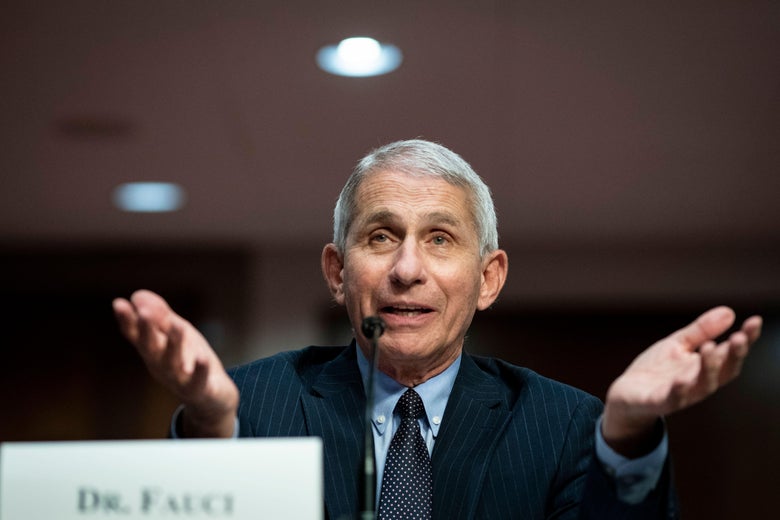
Anthony Fauci, the country's top infectious disease expert, says the data is clear that it is "young people" who are "driving this new surge" of coronavirus infections. While the young may feel invincible and they're right that most of them won't get sick, they need to understand the role they play in making sure the virus keeps spreading to others with sometimes lethal consequences. "They're not going to get very sick. They know that," Fauci said in an interview with WebMD's chief medical officer John Whyte. "So what I think is happening is that, understandably, innocently, but not correctly, the younger individuals are saying, well, if I get infected, so the chances of it is that I won't even have any symptoms, so who cares? That's a big mistake."
Recent data shows that the biggest age group reporting new COVID-19 infections is "at least 15 years younger" than a few months ago, he said. And even though it's true that statistically those people are less likely to develop severe symptoms, people need to analyze the consequence of their actions. "By allowing yourself to getting infected or not caring if you do get infected, you are propagating a pandemic. Because it doesn't end with you," Fauci, the head of the National Institute of Allergy and Infectious Diseases, said. "You get infected and have no symptoms. The chances are you're going to infect someone else, who will then infect someone else." And eventually in that chain the virus could reach someone who's vulnerable either because of their age or because they have a compromised immune system. "All of a sudden, you're not operating in a vacuum," he said. "You're part of the problem as opposed to being part of the solution." Fauci emphasized that he didn't want to blame anybody, characterizing it as a messaging problem. "These are people that are doing this innocently and inadvertently," he said.
Fauci spoke as the surge in new COVID-19 infections is leading to packed emergency rooms in some parts of the country. The new infections are rising around the world too as the World Health Organization reported a record increase in cases for a second day in a row with an rise of 259,848 in 24 hours. The United States led the ranking with 71,484 new cases followed by Brazil with 45,403 and India with 34,884.
Fauci, who is currently locked in a tense relationship with much of the White House leadership, said he stands by his prediction last month that the United States may very well start reporting as many as 100,000 new COVID-19 infections per day. Although getting to that number isn't inevitable, avoiding it would require people to follow social distancing guidelines and wear masks. "I do hope we don't reach that and that we actually turn it around in time," Fauci said. "But, you know, the virus is- is a very formidable foe here."
In an interview with Facebook's Mark Zuckerberg on Thursday, Fauci had warned that while most young people won't develop serious symptoms, there are growing reports that many do get sick for weeks and that could have long-term consequences. "It's the people who really get knocked out badly, particularly those who require hospitalization, that it's going to take months to a year or more to determine if there are any long-lasting, deleterious consequences of the infection," Fauci said. "We just don't know that now. We haven't had enough time."